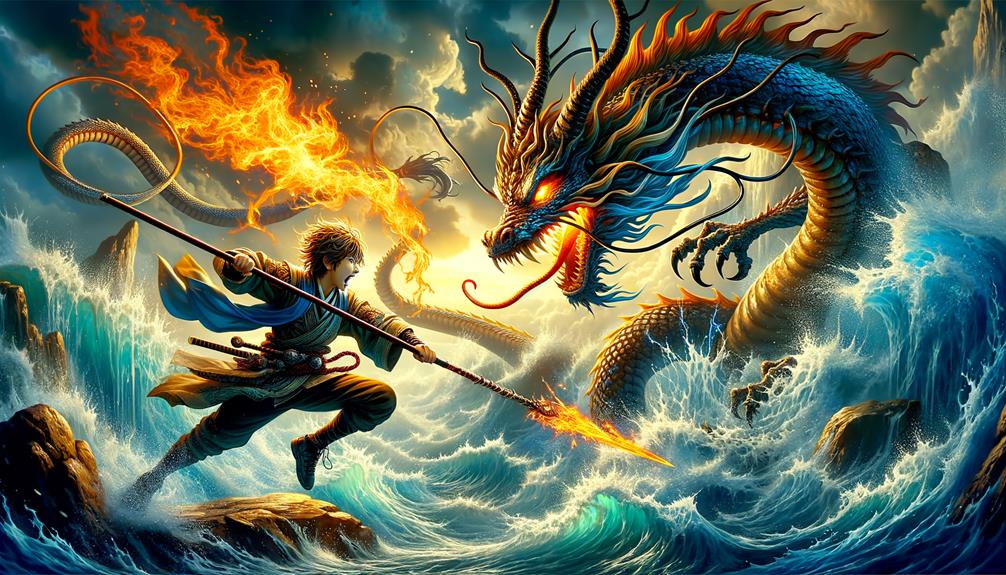The Moral Complexity of Nezha: A Western Ethical Lens
Nezha, a beloved figure in Chinese mythology, is often celebrated as a hero. Yet, his actions—such as killing Ao Bing—raise questions about moral absolutism. Through a Western ethical framework, Nezha’s deeds challenge traditional black-and-white morality, exposing the gray areas between good and evil. This article examines whether Nezha’s violence can be justified under Western philosophical principles like utilitarianism, deontology, and virtue ethics.
Utilitarian vs. Deontological Perspectives
From a utilitarian standpoint, Nezha’s killing of Ao Bing may be defensible if it prevented greater harm—perhaps stopping a tyrannical dragon from wreaking havoc. However, deontological ethics would condemn the act, as intentionally killing another, regardless of consequences, violates moral duty. Kantian principles suggest Nezha had alternatives—negotiation, restraint—yet chose violence as a means to an end.
The tension between these frameworks reveals Nezha as neither purely heroic nor villainous. His actions demand scrutiny: Was his decision grounded in justice, vengeance, or necessity? Unlike Western heroes bound by rigid moral codes, Nezha operates in a more fluid ethical landscape.
Virtue Ethics and Heroic Ambiguity
Virtue ethics, which evaluates character rather than rules or outcomes, presents another layer. Nezha’s impulsiveness and defiance—traits often praised as heroic—also led to reckless violence. Aristotle’s concept of the golden mean suggests a balance between rashness and cowardice, yet Nezha frequently leans toward extremes, complicating his moral standing.
- Courage vs. Recklessness: His bravery in battle could equally be seen as disregard for consequences.
- Loyalty vs. Obedience: His loyalty to family and village conflicts with moral disobedience (e.g., defying heaven’s decree).
This duality positions Nezha as a flawed protagonist, challenging Western ideals of unambiguous heroism. His virtues, while admirable, are inseparable from his moral failings.
Conclusion: Nezha in the Gray
Nezha’s actions, examined through Western ethics, resist simple categorization. Utilitarianism might excuse his violence for a greater good, while deontology condemns it outright. Virtue ethics reveals a hero whose strengths are also his weaknesses. Ultimately, Nezha embodies moral complexity—his choices reflecting a world where right and wrong are intertwined. This ambiguity not only deepens his character but also invites cross-cultural ethical reflection.


